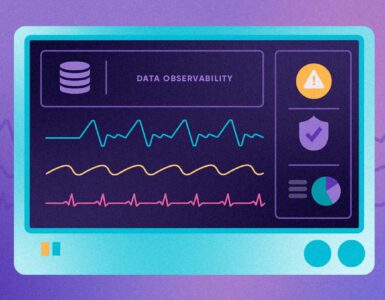Blockchain is now the backbone of the most mined cryptocurrency currency, Bitcoin. Blockchain is primarily a distributed DB of transaction records, which have been executed and shared across the parties. Each of these transactions is verified by a majority of the participants in the system which makes things easy. This system contains every record of each involved transaction. The blockchain concept first came into the picture when ‘Satoshi Nakamoto’ published a white paper on this technology as “Bitcoin: A peer to peer electronic cash system.” This article will try to answer some of the most frequently asked questions about blockchain technology.
Blockchain Faq
What is Blockchain in layman terms?
At the core, blockchain is simply a highly distributed data store. All who participate in this network have a unique data store, which stores all transactions happening on the network. This is called a distributed ledger. The entries are stored with the cryptographic chains in the form of blocks. At each stage, the network of participants may agree with the most recent block of transactions. This agreement can be reached through majority consensus regarding the process, which will help eliminate any duplication of entries and double spending etc. This, along with the cryptographic layering of blocks, makes the blockchain irreversible and also immutable. This cannot modify the history of events in this technology.
How does blockchain work?
As we have seen above, the major usage of blockchain is in Bitcoin. This is a cryptocurrency that is now largely used for online transactions and exchanging digital assets. Bitcoin uses cryptographic proof than relying on a third-party trust as in the case of normal currencies. Each Bitcoin transaction is protected through a digital signature.
How does private blockchain work?
Private blockchains are usually deployed with the organization or getting shared among a close group of predefined participants. In this model, no one out of this group will be able to access the same or view the data in this network. All the transactions can be secured this way b securing integrated enterprise applications like VPN and firewalls etc. For blockchain application databases, services by RemoteDBA.com are very reliable.
How do we use blockchain in business?
With blockchain, we eliminate any middlemen or third-party guarantees. Blockchain will enable secured sharing of the business processes as business contracts, records, and activities between enterprises in an encrypted form. Blockchain will also use the cryptography principle, which helps store the data, which is impossible to duplicate, hack, or misuse. All these transactions will be done on various computers involved in the chain, and so the records cannot be altered by anyone.
What is Smart Contract in blockchain?
A smart contract is a form of code that can be deployed onto the blockchain. In this, each smart contract will have a code that comes with a predefined input set. Smart contracts will store data and follow a distributed model of blockchain. Smart contracts tend to run on each node in this technology, and each contract’s data is getting saved in all the nodes alike. The involved parties can query this data at any time. Smart Contracts can also call the other smart contracts related, run the workflow logic, enforce the permissions, etc. The smart contract code is run within the transaction, so data is stored as a result of running smart contracts, which is a part of the immutable ledger of the blockchain.
What kinds of data can blockchain store?
As we have already seen above, blockchain comes up as a distributed database that will maintain details of every transaction in the given series of blocks. All these transactions will be added to the ledger in sequential order, chronologically. Transaction details stored thereby in the block are called the genesis block. These blocks usually consist of:
- The previous has, i.e., the hash of the immediately previous block.
- Data like the sender address,receiver address,transaction amount, etc.
- Unique hash, which acts as the unique fingerprint.
- Nonce, which is a random value assigned.
What are the different types of blockchain?
The three most common types of blockchains are public blockchain, private blockchain, and hybrid blockchain. Let us look into each.
- Public blockchain–This is an open-source, decentralized platform where everyone with an internet connection can be a part of this blockchain network and easily access the available records to verify the transactions. A public blockchain is used for data mining and exchanging cryptocurrency. Bitcoin and Ethereum are examples of public blockchains.
- Private blockchain – This is acentralized platform that needs some permissions to join it. These restricted blockchains are used within an organization or closed groups. The purpose of private blockchain is for voting. Digital identify management, supply chains, asset ownership, etc. Some examples are Corda and Hyperledger etc.
- Hybrid blockchain – This is the combination of private and public blockchains. This model gives more flexibility for businesses to choose what data they want to make public and keep in the private chain.
How much cost will be involved in setting up a private blockchain for a business?
The cost involved in setting up a private blockchain may vary based on several factors. For this, the businesses need to analyze their blockchain objective, requirements, platforms to be adopted, technologies, and tools. There are many low-cost solutions if you adopt offshore or nearshore blockchain development services. There are many good providers in blockchain development which can share relevant blockchain information and customized blockchain development cos with you. Based on your use case.
There are only a few fundamental questions a business may have in mind while thinking of adopting blockchain technology. You may ideally explore various options in blockchain building and different technologies and tools to be used to reduce cost, optimize returns, and ensure security. Being a technology of the future, you can rest assured about your return on investment if you build a foolproof blockchain mechanism for your business to adopt, either in private or being a hybrid.




























